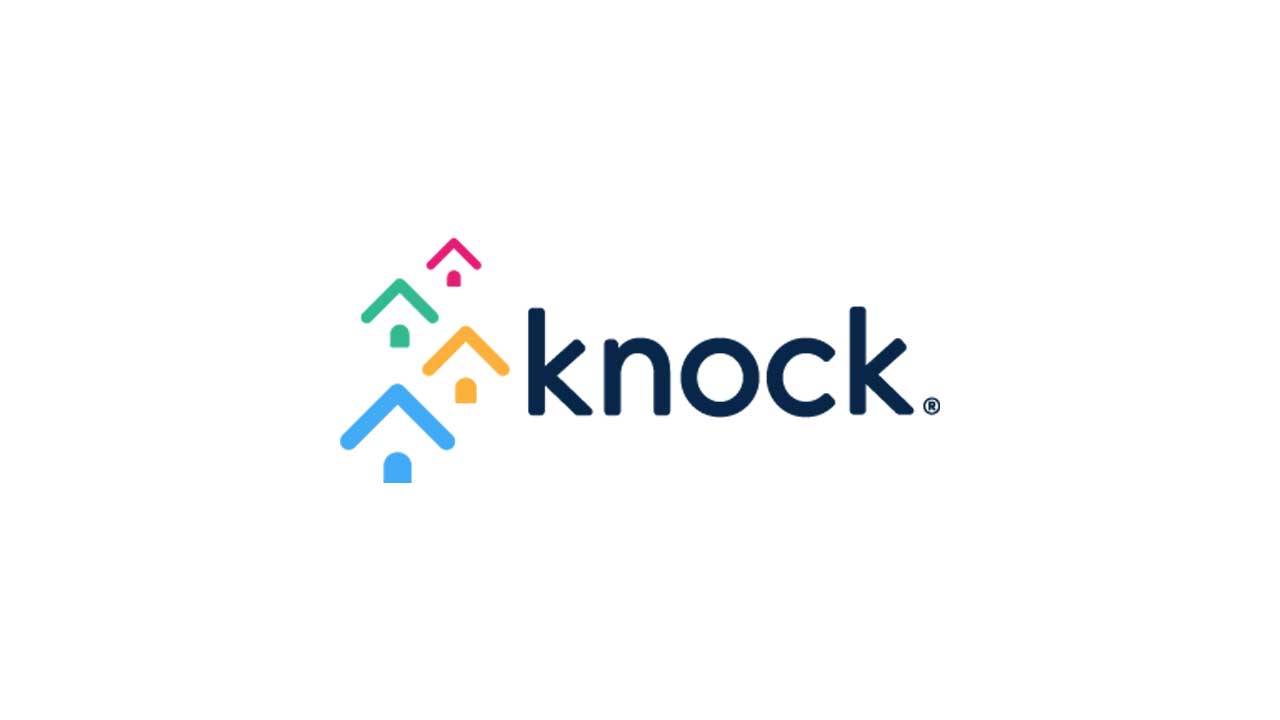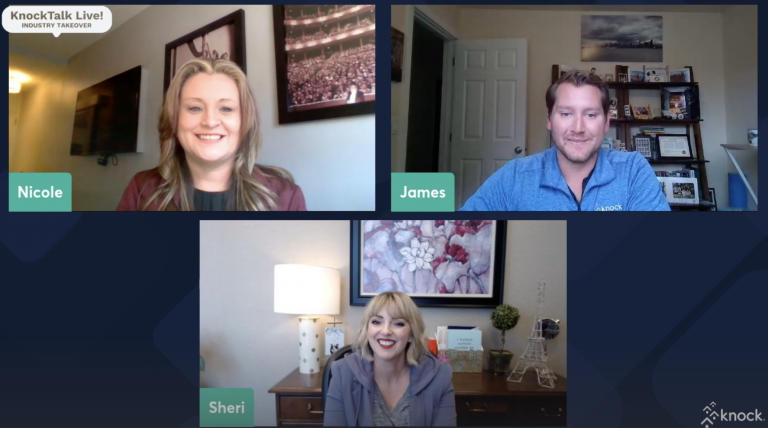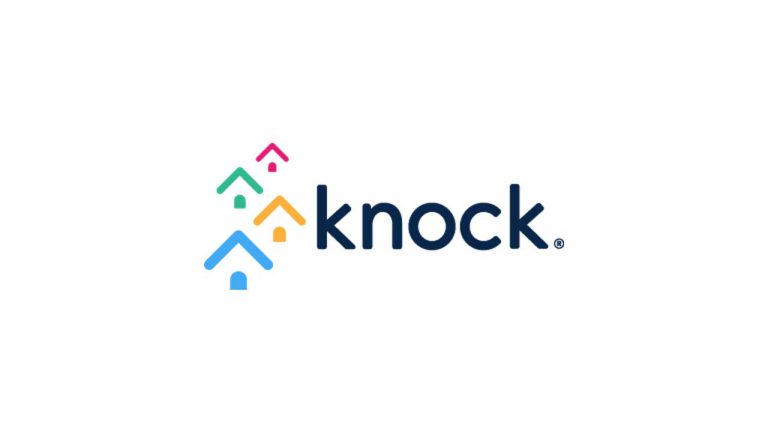Knock Talk: Ep. 18 – How to foster collaboration across teams and organizations

Why have we as an industry always seemed to focus our career pathway training in a manner that tends to push our team members into professional silos? While this practice may seem essential to helping one master their specific departmental craft, it pushes professionals towards developing professional tunnel vision. How does this help their ability to truly understand how their skill set fits into the “Big Picture”? If one does not understand why their place is where it is- how can anybody truly understand how to contribute fully towards a company’s overall mission? And, how can technology help?
Episode Highlights
Why should suppliers understand your 'why'?
How does Knock help teams understand their why?
Communication is key to breaking down silos
What has you most excited about the future?
Full Transcript
Jordan Greek: Hey, everyone, Jordan Greek here, and I’d like to welcome you all to Knock Talk where we’re shedding light on all things multifamily for an office tech. In this episode, I’m excited to introduce Steve Wunch, regional vice-president here at Knock. Today we’re going to be talking about how to build collaborative workspaces that’s across teams and across companies. Steve, welcome to the show.
Steve Wunch: Hey, thanks, Jordan. Glad to be here. Hello, everyone.
Jordan: Steve, let’s just start off with telling us a little bit about yourself. Who are you, what do you do and why is this topic so important to you?
Steve: I am a 27 year veteran of the property management industry and I’ve done everything from on-site leasing to assistant manager, to the community manager, to the corporate side of things as a training and support role. I think it’s important to talk about our topic today because we’re in a different state now that COVID has dictated what our new normal is and I think it’s important for us to take a few minutes to step back and talk about what makes teams work better together in terms of collaboration and in terms of sharing information.
You’re in Seattle, I’m in Denver, we work on the same team but unless we’re willing to take some time to invest in sharing with one another, we won’t be able to be as effective as a team. That’s why I think it’s a good topic. It’s timely and that’s why we’re here today, I think.
Jordan: In my mind, I was thinking it’s so relevant, you use the word timely, but, yes, couldn’t agree with you more.
Steve let’s start talking about how you think about breaking down silos across functions. Can you help us understand a couple of the operational roadblocks that were maybe created when team members– they are not seeing the big picture. Both from cross-departmental perspectives and also as a partner collaborator perspective as well.
Steve: Sure. Silos are part of how we operate as people. I have a specific niche that I’m looking at and it’s my specialty. You have a special niche that you have and you work, it’s your specialty, but silos can also be dangerous things in terms of getting a team to collaborate and partner with one another. I think about coming to work for Knock. I started here on the 23rd of March. We just started COVID restrictions and we shut the Seattle office down.
There were 10 additional employees in the cohort. You were one of them, we started at the same time. If you think about how intentional Knock was in terms of, leveraging this technology of a Zoom room to onboard a remote team member, not necessarily what they would have wanted to do. I’m sure they would have wanted to bring us to Seattle and have us all meet face to face but because they were intentional about making sure that we were introduced to all the different business leaders in the organization, they were able to share what they do, how it impacts our work as salespeople. We were able to really hash out and establish some really strong relationships and rapport with one another, even though we’ve never met in person.
I think it’s important for us to think about, especially for those folks in leadership positions, in multifamily, where you may be at home in your office, or you may be at work at your regular office, but you’ve got folks that are spread out across different geographies. The important thing is to make sure that you’re having a conversation with everyone in the organization.
You don’t have to be eloquent. You don’t have to be a great speaker. You just need to communicate the truth and communicate it authentically. We have to leverage technology more now than we did in the past. I think as leaders, we got to step back and block that time, make sure that folks get face time with us, even though it’s virtual. The big why is a huge — Jordan, I’m sure you’ve heard that phrase used before, right?
Jordan: Yes.
Steve: The big why, the why behind the what, and being able to articulate that in terms that everyone can understand. I think one of the lines in the session you’ll hear on Tuesday is not everybody speaks CEO or C-suite. [laughs] If you’ve got folks that are working grounds, or if you’ve got folks that are on the service and maintenance teams, leasing teams, they all have a different kind of language that they’re speaking.
When you’re ready to communicate your messages, and you’re ready to get initiatives kicked off and started, make sure that you’ve got a message that meets the audience where they are. Know your audience, know your audience, know your audience, but you do have to take the time out. I think that’s an important thing to make sure because we get zoned in and we have to step back and make sure that we put time on our calendar to share those important messages.
Jordan: Yes. This idea of silo and working from home, I actually physically feel like I’m in my own silo. This bridge that we’ve got here is Zoom. I feel like you and I, specifically, have gotten to know each other so well in the last several months. This is how you and I have done it. You almost beat me to the punch here. You talked about it a little bit, but this idea of why. Why is it so important for you to know the why, me to know the why, anyone? Why do we need to know the why, Steve?
Steve: The why is the spark that lights the fire. I’ve always looked at the why as being a really important piece. There’s a lot of different thoughts and theories out there. Simon Sinek is one of my favorite leadership gurus. His whole shtick is built off of the premise to start with why. We know what we do, we know how we do it, but why are we doing it? That really is where you need to start because if you don’t know why you’re doing something, or folks aren’t told, “This is why I’m asking you to do this,” it’s hard for them to get energy behind those efforts.
It’s hard for them to feel like they’ve got a voice in the conversation. The why is the starting point. At Knock, our why would be, “We want our partners to be successful, we want a return on their investment, we want to make their leasing teams as great as they can be in terms of sales, and then this is how we do it.” We show them Knock and we show them all the nuances that are there and then people get it and they buy in and they say yes to the dress. Does that answer that question?
Jordan: It does. It’s got me thinking, this idea of why, we’re born with that. If you think about kids, when they’re learning, it’s why. Why shouldn’t I do this? Why should I do that? Why, why why? At some point, we almost grow out of that a little bit. I appreciate you bringing it back to the fact that this almost innate question within all of us is why, and if we don’t address that, then we miss a big piece or a big ingredient in the recipe.
Maybe you can tell us more from your specific experience. When you’re working with partners, do you understand their why, and then why is it important for everyone, including your suppliers to know this?
Steve: That’s a great question. I think it’s important on several different levels. First of all, if I don’t understand my clients and what their pain points are, what their needs are, what is not getting done the way they need it to get done, if I don’t start with those kind of conversations first, then I’m not sure if I’m delivering a solution that’s going to meet their needs.
You talked about it being innate from birth and we want that why question answered. From a salesperson’s perspective, you got to ask, you got to zoom your lens out so that you know you’ve asked enough questions to determine what you know about your customer is what you need to know and then you can deliver what they are looking for.
Jordan: Yes. It’s just like it’s the idea of why should be woven throughout the fact that everyone– Like the fabric of the company. Everyone is a part of that and when everyone understands it, it just makes doing business with you, working with you that much more fun and real, authentic. You’ve used that word a couple times. Why helps us be authentic with our partners.
Steve: Yes. For suppliers, you’ve really got to make sure that you understand the why.
Jordan: Yes. It’s only a solution if it solves a problem or meets a need. Otherwise, we throw this word solution around, but it’s got to fix something
Steve: Yes.
Jordan: Awesome. We’re a tech company, you know this. I’d love to get your perspective on how a front office platform can work to break down the silos that we’ve talked about and how can it help teams really understand their why?
Steve: Sure. The first thing that pops into my mind is the word transparency. One of the things I think is most powerful about the solution that Knock provides is it gives everyone within the organization transparency into what’s going on. Our boss, Mike D., will say, “The best question I asked is, do you know what your teams are doing right now?” Most of the time, people can’t say yes. They have to say, “No, I’d like to, but I don’t,” and that’s one thing I think that Knock really provides our partners with, is this ability to see performance behavior right there on the screen.
It’s either going to tell you they’re moving in the right direction and they’re doing the right thing or I need to intervene and provide them with support and find out why they’re not hitting the mark that I need them to hit.
Jordan: Yes, definitely.
Steve: In terms of breaking down silos, I think that helps to break those walls down because normally, if my regional manager only comes to visit me once a month, I only have one day of the month that I need to make sure that all my T’s are crossed and my I’s are dotted [laughs] because company’s coming but with the transparency that Knock provides, those moments are every day, every moment, every second. You need to do the right thing because everybody can see what’s going on and that really is a key element in breaking those silos down.
Jordan: You got me thinking about transparency almost like this common language that everyone can speak within their organization, that someone from the on-site level to, say, a regional level all the way up to the C-suite. When you have this data, this transparency, that becomes your common language that everyone understands and can see at any point in time. That seems like that would make a ton of sense in helping break down the silos that you’re talking about.
Steve: We’re a tech solution. Not everybody on the multifamily team is going to partake in our product or use our product. I want to encourage those folks that are out there listening, your service team, your maintenance folks, they are so important to your success. There’s nobody that will keep the back door closed more effectively than those folks who are serving your customers in their homes every day. I really want to encourage our listeners to–
We focus on the front office because that’s where our product lives, but I do want to encourage folks, cross-collaborative partnerships happen from office and maintenance teams, from the property and the accounting team and the home office. You really need to make sure that you’re checking all your channels and making sure that you’re communicating through all the different channels that you’ve got people sitting on. That’s the way to make sure that everybody feels like they’re part of the conversation. That’s important.
Jordan: Yes. I couldn’t agree with you more. What are three things that multifamily operators can do today to help with building those bridges that you’ve talked about throughout this talk so far?
Steve: I think the number one thing I would suggest is talk about what’s going on. Don’t be afraid to talk about what’s working well. It’s easy to talk about that because, boy, we look great, this is going really well, but it’s the things that get stuck in the mud, and those moments where we maybe have a failure, or we have a service failure with a customer. Those are the things that we’re less likely to talk about, but those are the things that we need to be talking about more often.
Jordan: Great. Last question, Steve. We ask this of everyone that comes on the show. You probably know what’s coming here.
What has you most excited about the future of the multifamily industry?
Steve: I think it’s exciting that we have the opportunity to impact people’s lives in a positive way. Folks are walking through the doors of leasing offices all over the country, all over the world, for that matter, and they’re in the middle of all kinds of stuff going on in their personal lives. COVID is very scary. Maybe they’ve lost their job and they’ve had to downsize, or whatever’s driving them through the door of a leasing office, they’re in your hands and handle with care.
Because we provide a basic human need, and Knock, though it’s a SaaS platform, we’re giving leasing consultants and property managers the tools they need to communicate effectively with those folks that are in those situations. Just to know that at the end of the day, you have the opportunity to positively impact the experience of someone, and you could either make it a great impact, really positive impact, or you can do the wrong thing and ignore what’s important in their life.
That’s excited me. For 27 years, I’ve been doing this. [laughs] That’s what gets me out of bed every day. We have the opportunity to make leasing teams’ lives easier, and the easier their lives are, the better they’ll serve the residents. I think that’s what gets me excited.
Jordan: I’m right there with you. What’s so fun about this topic, build a bridge, get over it, how to foster collaboration. Again, you and I, we’ve lived this, Steve. I’m just grateful for being a colleague of yours and being a friend of yours now in the industry. We’ve lived it and we’re doing it right now. Everything you’ve said today, really actionable takeaways. We appreciate you being with us. That concludes our episode of Knock Talk, and everyone listening, we’ll see you next time.
Steve: See you later.


